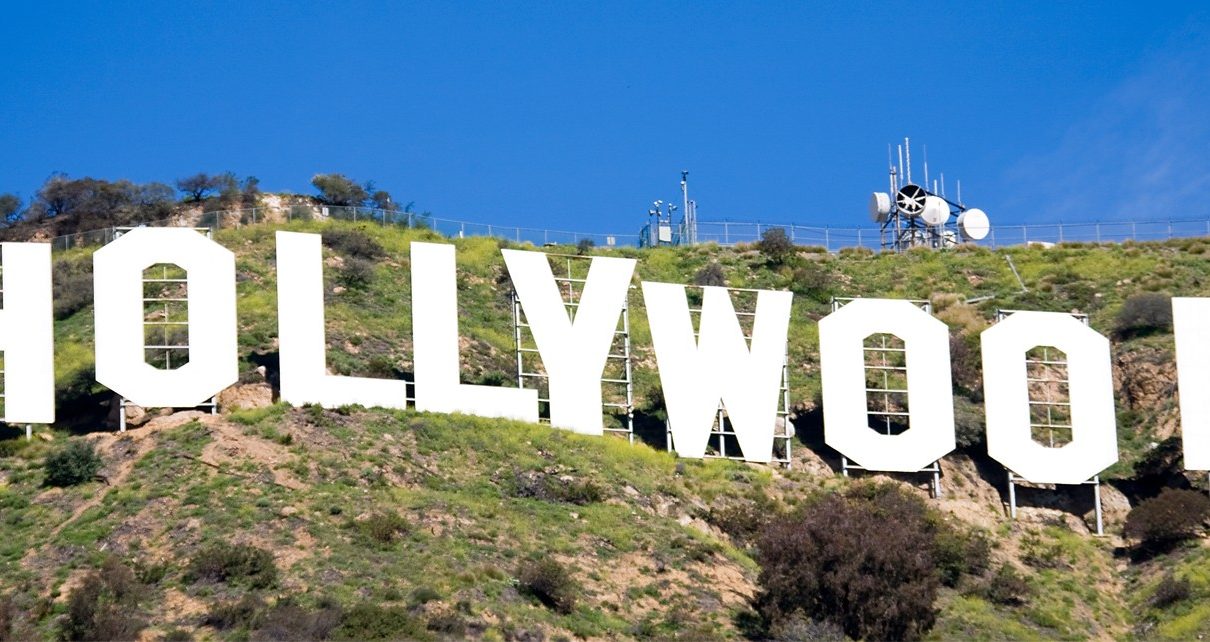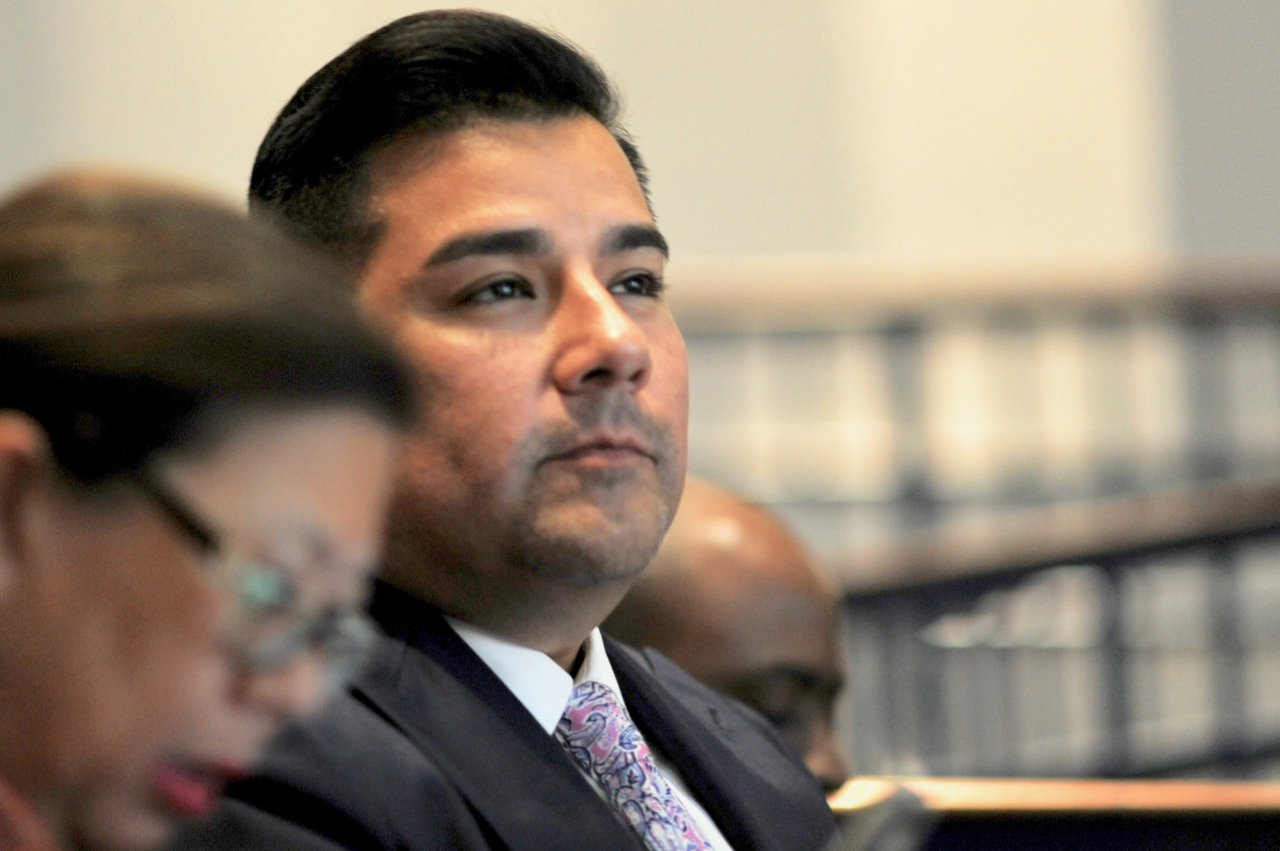
The Hollywood Sign (Photo: Wikipedia)
Theater Closures and Set Shutdowns Threaten the Film Industry in California
The coronavirus may end up altering the movie industry forever
By Evan Symon, March 18, 2020 7:38 pm
The U.S. box office made $55.3 million last week, the lowest total since September of 2000. Across Hollywood, productions have been halted, movie releases have been pushed back or moved to paid streaming, and movie theaters sit empty. For the film industry, which is a major industry in Southern California, this doesn’t bode well.
The coronavirus panic grinds the movie industry to a halt
Many layoffs have already occurred. With quarantines and group gathering limits being put into place because of COVID-19 coronavirus fears, movie theaters across the state have had to lay off thousands of employees. In Hollywood, many studios and surrounding industries have had similar numbers let go.
“There’s nothing we can do right now,” said Jesse Hargreaves, a camera rental store owner in Burbank. “We had a steady stream of renters and reservations until a few weeks ago. Now everything is cancelled. And there’s nothing we can do.”
“We had one lens rental for a late night show in the past week and we were lucky to have that.”
“We have enough cash to make it through a few months at least. If it goes on for longer, then we have to make some difficult decisions.”
“Everyone is scared,” added “Annamarie,” a makeup worker for a major studio in Los Angeles. “No one expected it to be like this. But here we are.”
Halted and delayed films in every studio
Many of the changes have been noticeable, and will cause major disruptions for the film industry, as well for movie goers. Projected blockbusters such as ‘Mulan’ and the James Bond film ‘No Time to Die’ were moved from March and April releases to later in the year. ‘Fast and Furious 9’ was moved nearly an entire year to April of 2021. For studios, usually characterized as large cash machines for those outside of the industry, this could result in a huge loss.
“A lot of these movies had marketing for months leading up to these March and April dates,” said Michelle Vossen, a marketing consultant whose clients include film studios. “They have to drop millions more into TV spots, billboards, bus ads, and a lot of other areas many don’t realize marketing goes into.”
“A lot of stars will be hesitant to promote films. The public will be hesitant to go back to theaters once they reopen. Recouping money on these are going to be much harder.”
“Studios are also going to be thrown off their release pace, as these delayed productions are going to mess that up even more.”
And all of these projected losses and filming insecurity are going to cause many to be out of work.
“I can’t give a definite number,” continued Vossen. “No one can. But if you look at how many studios, production houses, and even smaller things such as rental lots and craft services providers are being affected in LA, but also places like Vancouver and Atlanta, we’re looking at tens of thousands of people. Many of those people also have hyper-specific jobs where it’s not exactly easy to transition to something else.
It’s going to be bad for movies, but also a lot of people.”
Overseas markets have already cut into profits of newer movies such as ‘Bloodshot’, where a Chinese quarantine had the film make next to nothing there. Film festivals in the US and abroad will also cause a delay and monetary loss in many films.
For California, this will result in a huge tax loss from studios and productions, as well as lost wages. There is even a remote chance of the industry possibly asking for a bailout if revenues don’t improve in the near future.
“It’s unlikely, but if it goes on for a long time, it’s possible,” admitted Vossen. “But it’s still very unlikely.”
A potentially changed streaming future
Many studios, such as Universal, are looking toward paid specialty streaming for both movie releases and to recoup losses. Some, like MGM and Lionsgate, will try to hang on for the run of the virus. Others, like Disney, are taking the hybrid route of releasing some on it’s streaming service while waiting for a wide release of newer films.
“We knew streaming was going to become a part of releases, but the studios are now getting a forced test of this,” continued Vossen. “I’ve had marketing meetings over the viability of this, and studio executives never wanted that. Now, for some, there’s no choice. And if it turns out to be profitable, and if people like this better than traditional movie-going, then the coronavirus will have just altered a gigantic industry.”
“When the pandemic ends, and things get back to normal, we’ll really see what happened. But right now, a lot of people are fearing for their jobs here, and a lot of studios and theaters are fearing a sudden streaming change. We may see fewer movie theaters because of this.”
- Bill to Require Law Enforcement Disclosure if AI Was Used To Help Write Reports - August 7, 2025
- Gov. Newsom Files FOIA Request To ‘Expose True Cost’ Of L.A. Federal Troop Deployment for Anti-ICE Riots - August 6, 2025
- California Redistricting: How Newsom’s Plan Will Demolish Hard Fought GOP Gains - August 6, 2025




